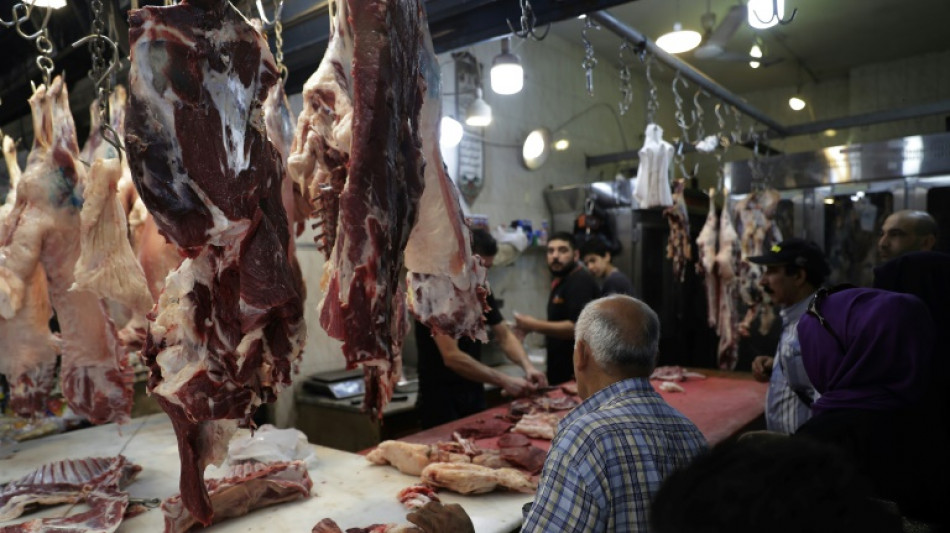
-
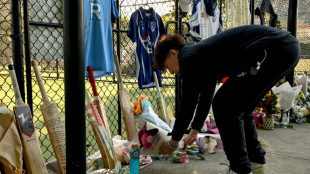 Tributes as death of Australian teenager touches cricket world
Tributes as death of Australian teenager touches cricket world
-
Jackson throws four TD passes as Ravens rout Dolphins

-
 NBA champs Thunder roll past Wizards, Bucks and Spurs win
NBA champs Thunder roll past Wizards, Bucks and Spurs win
-
UK's Andrew in freefall, stripped of queen's protection

-
 Real Madrid and Barcelona aim to shake off Clasico consequences
Real Madrid and Barcelona aim to shake off Clasico consequences
-
Ambitious Paris FC making steady progress after landing in big time

-
 Rebuilt Leverkusen hope to reignite Bundesliga rivalry at Bayern
Rebuilt Leverkusen hope to reignite Bundesliga rivalry at Bayern
-
Xi primed to meet Japan, Canada leaders after Trump summit
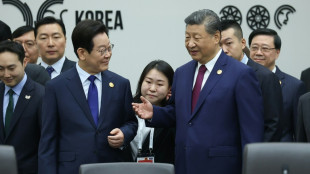
-
 Australia coach Schmidt pleads for Edmed patience ahead of England clash
Australia coach Schmidt pleads for Edmed patience ahead of England clash
-
Liverpool feel pressure to end 'crisis' run, Man City test Bournemouth limits

-
 Farrell eyes 'reset' as Ireland-All Blacks ready for 'Battle of Chicago'
Farrell eyes 'reset' as Ireland-All Blacks ready for 'Battle of Chicago'
-
Asia markets mostly up on heels of Apple, Amazon earnings

-
 Jones wants Japan to enhance 2015 legacy against South Africa
Jones wants Japan to enhance 2015 legacy against South Africa
-
Growing rice in the UK 'not so crazy' as climate warms
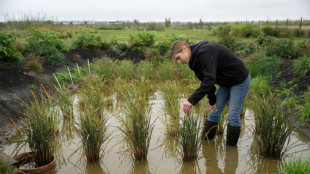
-
 Australia say 'let ourselves down' after India end world domination
Australia say 'let ourselves down' after India end world domination
-
AI cannot make cinema, director Linklater says

-
 After delays, Egypt set for lavish opening of grand museum
After delays, Egypt set for lavish opening of grand museum
-
What we know about the downfall of Andrew, born a UK prince

-
 Desperate Dodgers mull using Ohtani as relief pitcher
Desperate Dodgers mull using Ohtani as relief pitcher
-
Blue Jays vie to close out sputtering Dodgers in World Series

-
 Indigenous Australians celebrate historic state treaty
Indigenous Australians celebrate historic state treaty
-
Caught between Venezuela and US, Trinidad fishermen fear the sea

-
 Latest NFL Chiefs-Bills duel has both chasing division leaders
Latest NFL Chiefs-Bills duel has both chasing division leaders
-
Sierra Leone chases rare repeat in Breeders' Cup Classic

-
 King Charles strips Andrew of royal titles, Windsor home
King Charles strips Andrew of royal titles, Windsor home
-
Sales of 'services' help Apple beat earnings forecasts

-
 Beyond words: '67' crowned 'Word of the Year'
Beyond words: '67' crowned 'Word of the Year'
-
Amazon shares surge as AI boom drives cloud growth

-
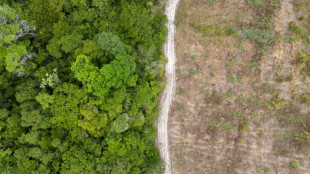 Brazil boasts drop in deforestation ahead of UN climate talks
Brazil boasts drop in deforestation ahead of UN climate talks
-
Russians marking Stalin's repression warn against return to past

-
 Stocks mostly fall as investors digest Trump-Xi talks, earnings
Stocks mostly fall as investors digest Trump-Xi talks, earnings
-
Turkey says Pakistan-Afghanistan talks to resume
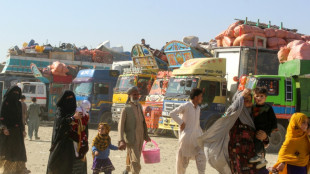
-
 Record-breaking India upset Australia to reach World Cup final
Record-breaking India upset Australia to reach World Cup final
-
US to limit refugees to record low 7,500, mostly white South Africans

-
 King Charles to strip Andrew of royal titles, residence: palace
King Charles to strip Andrew of royal titles, residence: palace
-
Sinner marches into Paris Masters quarters, Bublik downs Fritz

-
 Devastated Caribbean assesses damage as hurricane eyes Bermuda
Devastated Caribbean assesses damage as hurricane eyes Bermuda
-
Trump stirs tensions with surprise nuclear test order

-
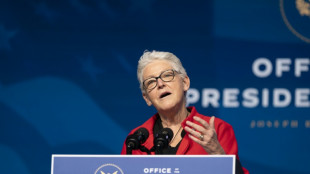 100 US local leaders will attend COP30 in 'show of force'
100 US local leaders will attend COP30 in 'show of force'
-
UN warns of 'atrocities,' 'horror' in Sudan as RSF advances

-
 Rodrigues hits ton as India stun Australia to reach Women's World Cup final
Rodrigues hits ton as India stun Australia to reach Women's World Cup final
-
Trump's order on nuclear testing: what we know

-
 Spalletti returns to football with Juventus after Italy flop
Spalletti returns to football with Juventus after Italy flop
-
Rodrigues hits ton as India chase 339 to stun Australia in World Cup semis

-
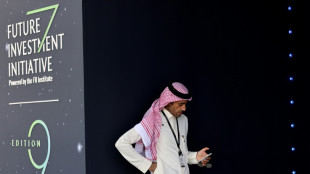 Saudi chases AI ambitions with homegrown firm pitched to global investors
Saudi chases AI ambitions with homegrown firm pitched to global investors
-
Russia batters Ukraine energy sites with deadly aerial strikes
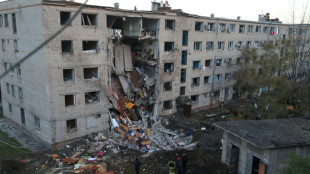
-
 Stocks diverge as investors digest Trump-Xi talks, earnings
Stocks diverge as investors digest Trump-Xi talks, earnings
-
'Better to go to prison': Israeli ultra-Orthodox rally against army service
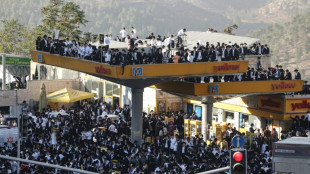
-
 Bublik downs fourth seed Fritz to reach Paris Masters quarters
Bublik downs fourth seed Fritz to reach Paris Masters quarters
-
UN climate fund posts record year as chief defends loans


Meat off the menu in crisis-hit Lebanon as poverty bites
Layla Ibrahim has cut down on her daily meat consumption, not because of a health fad but forced by Lebanon's bruising economic crisis.
"I used to eat a slice of meat, chicken or fish every day, but the prices of these items have become ridiculous," the 44-year-old mother of two told AFP.
"Out of necessity and not choice, I have almost become a vegetarian," she added.
Lebanon is grappling with an unprecedented financial crisis that the World Bank says is of a scale usually associated with full-scale wars.
The currency has lost more than 90 percent of its value on the black market, more than 80 percent of the population lives in poverty, and prices have skyrocketed.
The price of imported red meat has increased fivefold, with some cuts costing more than the monthly minimum wage of 675,000 Lebanese pounds ($33).
As a result, dietary habits have changed and plant-based dishes -- a popular part of Lebanon's Mediterranean cuisine -- are now a main course in many households.
For Ibrahim and her family, meat is served only once a week and even then in small portions.
"We started using smaller quantities of minced meat in stuffings and stews," Ibrahim said.
"Even the Sunday family barbecue has been scrapped."
- Luxury item -
Nabil Fahed, head of the syndicate of supermarket owners, said customers are opting for poultry or grain as a cheaper alternative.
Chicken is almost three times cheaper than beef and sells at around 120,000 pounds ($5) a kilo.
The demand for red meat has plummeted since the government lifted subsidies on certain food imports in March 2021, Fahed said.
Sales dropped by around 70 percent in large supermarkets and the decline is even steeper in popular markets frequented by people with low incomes, he said.
Nancy Awada, a food inspector working with the Beirut municipality, has noticed a change in supply.
"The quantities of meat stored in a butcher's refrigerator... today are a quarter or a third of what they used to be," she said.
"Instead of slaughtering two or three calves a day, butchers make do with only one."
- Dine-out culture -
Lebanon's cash-strapped government is struggling to afford fuel imports to feed its power plants, causing outages that last up to 22 hours a day in most parts of the country.
To safeguard stocks, traders and distributors have to pay for expensive generator subscriptions to power refrigerators, said meat importer Imad Harouk of the Fed Distribution company.
A spike in transport costs due to the lifting of fuel subsidies last year has also raised the overall meat bill, Harouk told AFP.
Adjusting to demand, importers have sized down on stocks.
"Lebanon used to import 70 containers of frozen meat every month, but now the number is nearly 40," Harouk said.
Tony al-Rami, head of the restaurant owners' union, said inflation has altered ordering habits even in cheap fast-food chains.
"Demand has dropped for meat shawarma sandwiches, with consumers leaning more towards chicken," he said.
This trend has played out at the Kababji grill house, a restaurant famous for its wide selection of meat skewers.
"The economic crisis combined with the Covid-19 pandemic has caused a significant decline in overall sales, especially of meat-based dishes," said Hala Jebai, the manager of Kababji's customer service department.
"The high-quality meat that we offer is imported and paid for in dollars... which has led to a significant decline in demand," she added.
In a Beirut department store, Charles Nassour approached the butcher's counter to purchase minced meat.
The 62-year-old used to put in a standard order of one kilo (two pounds) before the crisis but now he asks for an amount worth just under $2.
"A lot of consumers are buying limited quantities based on what they can afford," Harouk, the meat importer, told AFP.
"Even the well-off can't consume the way they used to."
J.Bergmann--BTB




